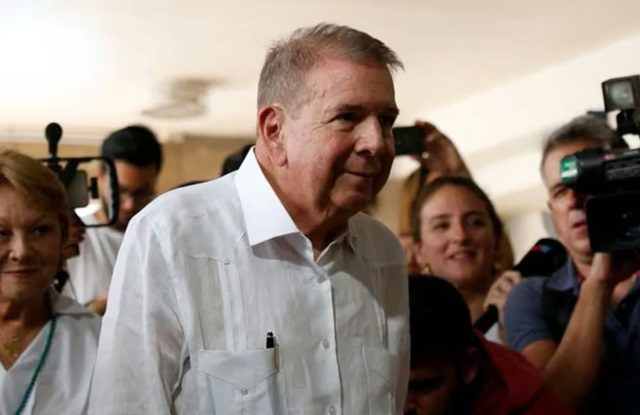BTN News: Edmundo González Urrutia, a prominent Venezuelan opposition leader, has sought political asylum in Spain following escalating threats and persecution by the Nicolás Maduro regime. González, who recently contested Venezuela’s presidential elections, arrived in Madrid under tense circumstances, having faced significant “pressures, coercions, and threats” that nearly prevented his departure from Caracas. His sudden move to Spain marks a critical development in Venezuela’s ongoing political crisis, as it underscores the intensifying crackdown on dissent and the fragile state of democracy in the country.
A Dramatic Escape from Caracas
Edmundo González Urrutia, the Venezuelan opposition leader and former presidential candidate, made headlines this week after fleeing to Spain under intense political pressure. After spending more than a month in hiding, González, accompanied by his wife, arrived in Madrid on a Spanish Air Force plane that landed at the Torrejón de Ardoz military base near Madrid on Sunday afternoon. According to González, his departure from Caracas was fraught with “pressures, coercions, and threats of not being allowed to leave.”
“I Will Continue the Fight for Freedom,” Says González
Upon his arrival in Spain, González addressed his supporters in an audio message distributed by his communications team. “I want to extend my heartfelt thanks for the expressions of solidarity received from many of you,” he said. “I trust that soon we will continue our fight to achieve freedom and restore democracy in Venezuela.” His words echoed a deep commitment to the cause, despite being forced into exile.
Why Did González Seek Asylum?
González’s decision to leave Venezuela comes amid a severe crackdown by the Nicolás Maduro government. Following the disputed elections on July 28, where González was a presidential rival, he faced multiple charges, including “usurpation of functions” and “forgery of public documents.” Venezuelan authorities, widely criticized for serving the interests of the Maduro regime, had issued an arrest warrant for González after he published documents online alleging electoral fraud. He initially took refuge in the Dutch Embassy in Caracas before moving to the Spanish Embassy, where he remained until he could safely leave the country.
Spanish Government Assures Asylum Process Will Proceed Swiftly
Spain’s Ministry of Foreign Affairs confirmed González’s arrival and stated that the asylum process would begin immediately. “Spain is committed to the political rights and physical integrity of all Venezuelans, particularly political leaders,” read a statement from the ministry. The Spanish government emphasized that González’s asylum application was made of his own volition, denying any political negotiation between Madrid and Caracas.
Venezuela’s Opposition Responds: “A Brutal Wave of Repression”
Leading opposition figure María Corina Machado, who remains in Venezuela, called González’s departure “necessary to preserve his freedom and life.” She pledged to continue the fight on the ground, stating, “Edmundo will continue the struggle from abroad with our diaspora, and I will remain here, alongside all of you.” Meanwhile, the Platforma Unitaria Democrática (PUD), the main coalition of opposition parties that González represented in the contested elections, criticized the Maduro regime, calling the asylum “a confirmation of the state’s terrorism” against those defending the will of the Venezuelan people.
Diplomatic Repercussions and the International Response
The Venezuelan government, through Vice President Delcy Rodríguez, claimed that González had been granted “safe conduct” for the “political peace of the country.” However, the move has drawn significant international attention, further highlighting the Venezuelan government’s tactics against political dissent. Spain, for its part, reaffirmed its stance on supporting human rights and democratic freedoms, a position likely to attract both praise and criticism on the global stage.
Conclusion: A New Chapter in Venezuela’s Political Struggle
Edmundo González’s flight to Spain marks another chapter in the ongoing struggle for democratic restoration in Venezuela. While his presence in Europe may offer a platform to amplify his calls for change, it also signals the lengths to which the Maduro regime is willing to go to silence opposition voices. As González and his supporters continue their fight from abroad, the focus now shifts to how the international community will respond to these developments and what this means for the future of Venezuela.


